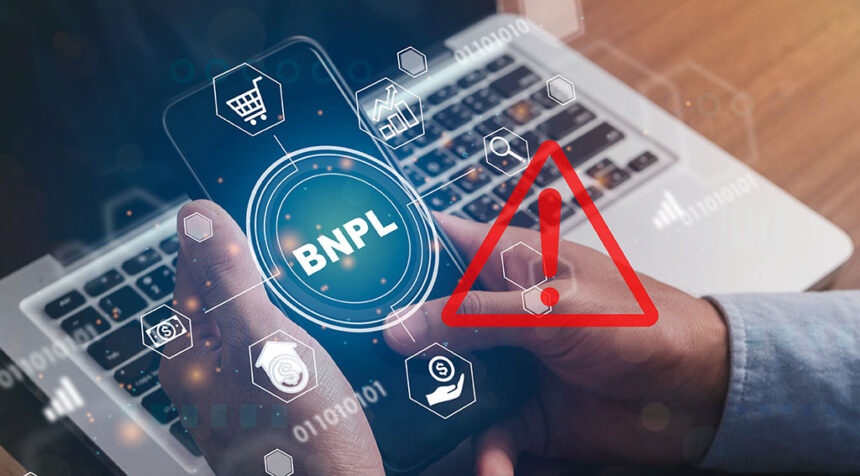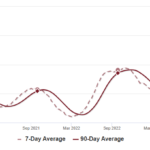BNPL fraud in Southeast Asia is rapidly increasing, with fraudsters developing sophisticated techniques to exploit weaknesses in these platforms and deceive users for financial gain.
New report by Rest of World hut It sheds light on how scammers are targeting Vietnam’s BNPL platforms by exploiting a loophole that allows them to convert users’ credits into cash through so-called cashouts.
In these BNPL fraud schemes, a borrower in need of cash agrees to use BNPL credit to pay a bill to a lender in hopes of receiving a cash transfer minus a small fee.
However, many lenders disappear without transferring the promised money, leaving the borrower liable to repay the BNPL provider at high interest rates.
How scammers target BNPL users in Vietnam
One of the victims, Dang Thi Hanh from southern Vietnam, used the Shopee SPayLater system to pay utility bills in exchange for cash. She paid VND611,000 (US$25), but the person disappeared and she was left in debt.
Dang’s experience is not unique in Vietnam, with many others falling victim to similar scams facilitated through Facebook groups.
Rest of World reports that there are hundreds of BNPL cashout groups on Facebook, connecting lenders with bills and borrowers in need of cash.
Lu Tan Tu, a SPayLater user who has been offering cashout services as a side hustle for over a year, estimates that about 70% of people promoting cashouts in these Facebook groups are scammers.
TPBank, which handles SPayLater credit in Vietnam, says that although the BNPL system is only used for purchasing goods and services on the Shopee e-commerce platform, using the BNPL system for utility bill payments is technically subject to these Terms. said Hui Pham. A finance lecturer at the Royal Melbourne Institute of Technology (RMIT) in Vietnam told the rest of the world. This creates somewhat of a gray area for the growing peer-to-peer (P2P) lending practice.
BNPL scam exploits Singapore users through Singpass scam
This type of fraud is just one example of how the BNPL platform can be abused.
In Singapore, police revealed another plan in September 2023. arrested Two men and a woman have been charged in connection with a recruitment scam using BNPL services.
At least 32 victims were forced to register for BNPL accounts using Singpass, Singapore’s national digital identity system, and hand over their account details. These accounts were used to make purchases in electronic stores, and the products were then collected for resale. The victims were guaranteed installment payments, but ultimately were left with more than $76,000 in unpaid bills.
BNPL fraud is not a new phenomenon. As early as 2021, CNBC reported Criminals exploited weaknesses in the BNPL platform’s application processes and often used sophisticated tactics such as identity theft and account takeover to incriminate unsuspecting victims. That’s what it means.
These schemes are facilitated by the fact that many BNPL companies do not conduct formal credit checks, instead relying on internal algorithms to quickly evaluate new customers. This creates vulnerabilities that fraudsters can easily circumvent by providing false or stolen information.
Addressing BNPL risks
BNPL is a payment option that allows consumers to purchase goods and pay in installments over a period of time rather than paying the full amount upfront. Many BNPL services offer an interest-free period if you pay off your balance within a specified period of time, making them more attractive than high-interest credit cards.
Additionally, BNPL services often have less stringent approval criteria than traditional credit products, which can be beneficial for individuals with limited or no credit history or in areas with limited credit access.
BNPL is rapidly gaining popularity in Southeast Asia due to the large number of people without access to traditional credit, a large tech-savvy population, and the rapid expansion of e-commerce.
There are currently 3.7 million active BNPL users in Malaysia. According to Submit to the Consumer Credit Oversight Board (CCOB). Ms. Azrita Abdul Aziz, Deputy Head of CCOB Task Force said The New Straits Times in June 2024 reported that the BNPL industry has consistently recorded double-digit growth, with 77.3 million transactions worth RM6.2 billion (US$1.5 billion) in 2023. . Similarly, there are approximately 7 million monthly BNPL debtors in Indonesia. According to Channel News Asia (CNA).
While BNPL arrangements offer users a flexible and convenient way to manage their shopping and purchases, they also pose risks such as overspending and accumulating debt.
In Indonesia, consumer debt related to the BNPL scheme will reach Rp 6.13 trillion (US$382 million) by March 2024, an increase of 23.9% year-on-year, CNA announced. reportedcited data from the Financial Services Authority (OJK).
In Malaysia, the late payment rate for BNPL services reached 4% as of September 2023, with 1.3% of users missing payments for more than three months, according to CCOB data. reported By CNA. The outstanding balance of BNPL transactions totaled RM900 million (US$665 million).
The rapid growth of BNPL services has raised concerns among regulators around the world. In the UK, the government has announced plans to regulate the BNPL industry. emphasize The importance of protecting consumers and bringing certainty to the industry.
Bank Negara Malaysia in Malaysia led the way Efforts to introduce the Consumer Credit Act (CCA), which aims to strengthen consumer protection by regulating non-bank credit providers such as BNPL companies. The Act established the CCOB and the Consumer Credit Council of Malaysia (CCC) to ensure fair treatment across financial service providers, including non-banks.
In Singapore, the Singapore Fintech Association, an industry association, introduced BNPL’s code of conduct includes protections such as outstanding payment limits, fee caps, and transparent disclosure “to reduce the risk of consumer over-indebtedness.”
According to Super app operator Grab estimates that BNPL spending in Southeast Asia is expected to increase by more than USD 7.9 billion by 2025, reaching a total of USD 8.83 billion. Indonesia is expected to lead this growth, accounting for 58% of BNPL’s spending on e-commerce platforms, or US$5.15 billion, by 2025.
Featured image credit: Edited from freepic





